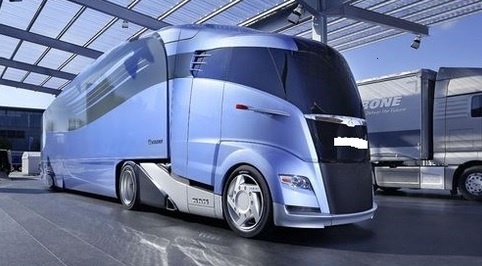
Due to the advances in legislation and technology, road transportation in Europe is constantly evolving. There are fewer barriers between the member states, both physical and economical.
But what is exactly the situation of international road transportation in Europe when looking forward? Let’s analyze the challenges the industry is currently facing, and what changes can we expect in order to overcome them.
The current barriers of road transportation in Europe
Nowadays, road transportation in Europe is still facing many challenges. Even with all the recent policy changes, we can still see the following issues:
-
Different policies in road transportation:
Despite the E.U.’s best effort to match the legislation of the different members, transportation experts are still facing all kind of administrative problems when moving between frontiers.
-
Unequal competition:
The transportation industry has a massive gap between its different actors, making it less accessible. This doesn’t only have an effect on new companies, but also stops existing ones from expanding naturally.
-
Lack of professionals:
No matter how smoothly the administrative elements run, transport will still be conditioned by the amount of cargo that can be moved. The current drought of drivers in Europe is causing an inescapable bottleneck on the whole industry.
The keys to the future of transport in Europe
A renovation of the road transportation industry in Europe will require profound changes, both at legal and technological levels. Some elements of this transformation have already started, while others are barely showing on the horizon.
-
Cohesive policies in road transportation:
The industry needs to be able to move smoothly between member states. The duties of transportation workers will become much easier once the fiscal and administrative differences disappear.
-
New Energies:
Like so many other industries, transportation is looking at the advances on new energy sources with great interest. For this advancement to have an impact, there will be a need for good financing plans, in order to update the current fleet.
-
Ecology and environment:
Road transportation is, by its nature, very damaging to the environment. The industry needs to be taken in consideration when making new policies on this subject, and good investment to be turned into viable alternatives for the medium and long terms.
-
Leveling the playing field on European road transportation:
Looking into the future, legislations will need to grant the industry new tools to compete with equal opportunities.
-
Digital Transition:
The informatization of communications and other processes should simplify the duties of many positions within the industry.
-
New professionals:
It is essential that the industry becomes more appealing to new generations. It requires new workers, not just to cover its current needs, but also in order to evolve into a newer, better industry.
Summary
In conclusion, technological and legislative changes can’t advance separately if we want the industry to flourish. The modernization of road transportation will require strong investment and a clear normative. Because of this, it is important that transportation professionals never stop paying attention to these changes, so that they can make their voice be heard on the decisions that will determine their future.
